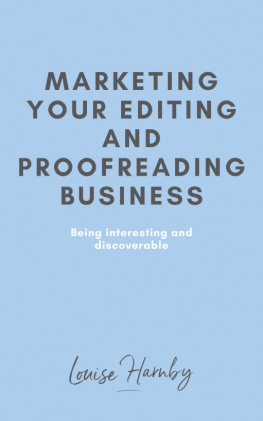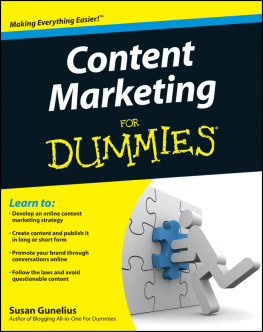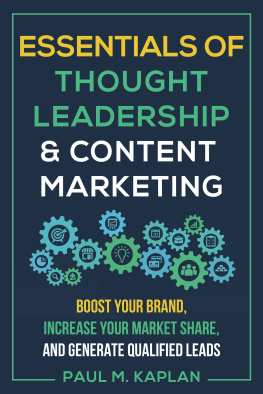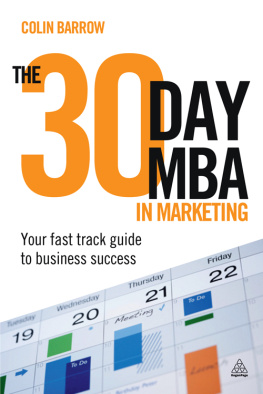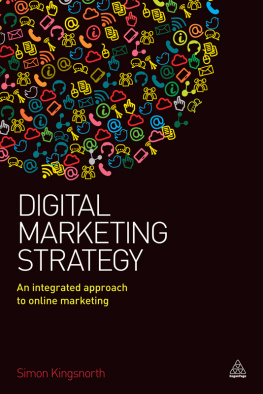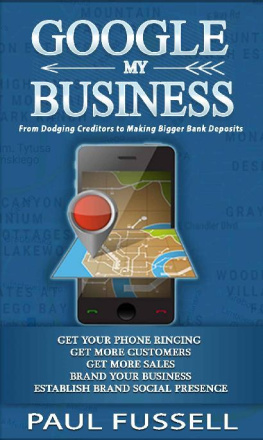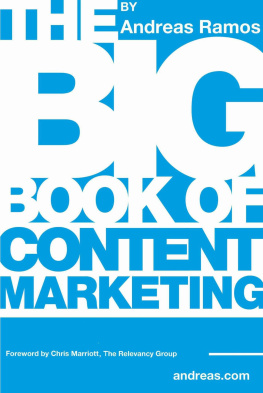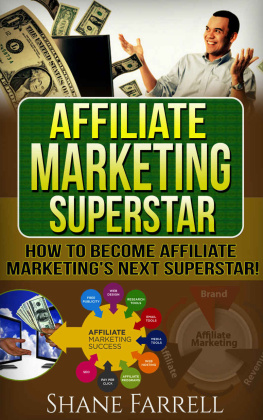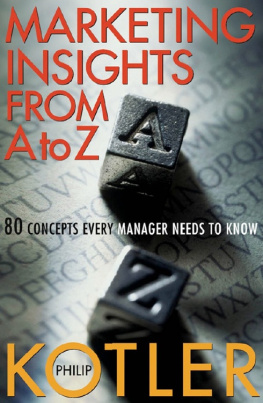Marketing Your
Editing & Proofreading Business
Being interesting anddiscoverable
Louise Harnby
in association with The PublishingTraining Centre
Marketing Your Editing& Proofreading Business
Louise Harnby
The right of Louise Harnby to beidentified as the author of this work has been asserted by her inaccordance with the Copyright, Designs and Patents Act 1988. Allrights reserved. This book is sold subject to the condition that itshall not, by way of trade or otherwise, be lent, resold, hiredout or otherwise circulated in any form of binding or cover otherthan that in which it is published and without a similar conditionincluding this condition being imposed on the subsequentpurchaser.
Published by Louise Harnby atSmashwords
Copyright 2014 by LouiseHarnby
This book is available inprint.
Also by Louise Harnby:
Business Planning forEditorial Freelancers
Contents
Foreword
This book has been written for any editorial freelancer whofeels that marketing is their Achilles heel. With it, I hope todemonstrate that marketing neednt be difficult, overwhelming orboring. The book takes proofreaders and editors through the basicsof developing and implementing an effective marketing strategy thatwill get them noticed and generate business leads.
Some readers may be wondering why Ivededicated a book solely to marketing when there was a chapterdedicated to the task in my companion volume, Business Planningfor Editorial Freelancers (2013a). The marketing chaptertherein was longer than any other. Nevertheless, in the interestsof balance and space, many of the issues I wanted to discuss indetail had to be omitted. After all, marketing is just one aspectof developing a business plan for the new proofreader or editor.The chapter in Business Planning thus aimed to give a tasterof some of the marketing activities that can be added to thefreelancers toolkit.
Marketing Your Editing &Proofreading Business thus takes off where its companion volumestarted. Not only does it cover the activities (or tools) that wereaddressed previously (though this time in far more detail), it alsoaddresses the concepts behind those activities.
Marketing continuesto be a term that strikes fear into the heart of many professionaleditorial freelancers, newbies and more experienced folk alike.Take the following comment that was posted by a colleague on a blogentry I wrote in June 2013:
Of all the things you say one needs todo, there is nothing I find more challenging than marketing. Tothink that it has to be an ongoing effort makes me feel worse!
Statements to that effect are somethingI hear often. I hope that by delving deeper into both the concepts(things to think about) and the activities (things to do), thereluctant or fearful marketer will find it easier to unshacklethemselves from the perception of marketing as a challenge and,instead, confidently embrace it as an opportunity.
Ive done my best to avoid jargon. Iwont say customer value proposition when I want to talk aboutadding value to your business. Nor will I be discussing grossrating points, category and brand development indexes, oroperating margins! This book isnt designed to prepare marketingstudents for professional exams; rather, its a book foreditorial business owners, by an editorial business owner and Ive therefore used the language that we use when talking toeach other on a day-to-day level.
Promoting our small businesses may bethe most exciting thing we can do on a professional level, becausefrom it we can see the direct benefits of our hard work. Everyemail we receive from a potential client, every project we secure,every contract we sign all are proof that our marketing plans areworking and that our editorial businesses are growing.
Louise Harnby, 2014
Introduction
But Im not a marketer ...
If you think youre not a marketer,reconsider. Everyone is a marketer. Every time youve filled in andmailed an application form, every time youve tried to persuadesomeone to make one particular choice over another, every timeyouve gone that extra mile for a client or tried to anticipate hisor her needs in order to do a good job and make a good impression,every business card youve handed out, every time youve dressedappropriately for an interview, youve been marketing.
Must I have amarketing strategy?
If you are running your own editorialbusiness, having a marketing strategy is essential. Theres littlepoint in investing all your valuable time and money in training,reference materials, and tools for the job if you cant sell yourservices to those for whom youd like to work.
Lois Frankel (2010) notes theimportance of one of the favoured phrases of California-basedleadership coach, Bruce Heller outta sight, outta mind, outtabusiness. Its worth remembering because it reminds us that wevery much need to be in sight and in the minds of our customers. Amarketing strategy enables us to plan how we will do this.
New editors and proofreaders enter theprofession every year. And the market is already full ofestablished professionals with excellent reputations and lots ofexperience. These people are your colleagues but theyre also thecompetition. If you dont invest time planning how you are going topromote your business, you are far less likely to succeed, simplybecause you wont get found.
What ismarketing?
Trawl the internet for advice onmarketing and youll soon find yourself knee-deep (virtuallyspeaking) in definitions. Here are a just a few:
Marketing is the activity, set ofinstitutions, and processes for creating, communicating,delivering, and exchanging offerings that have value for customers,clients, partners, and society at large. (American Marketing Association 2007)
Marketing is the management processresponsible for identifying, anticipating and satisfying customerrequirements profitably. (Chartered Instituteof Marketing n.d.)
Theyre two good definitions, andyoull notice how they focus on the customer, but theyre a bit ofa mouthful. More digestible is Robert Clays (2007) rather fundefinition:
If you could see the world through JohnSmiths eyes, you can sell to John Smith what John Smith buys.
Another is my husbands. Admittedly, heprobably borrowed this from someone else he cant remember eventelling me this but his definition of marketing is:
Persuading someone to think theywant what youve got. (JohnSwainston)
I like it because its easy to rememberand succinctly makes the connection between your business and yourcustomer.
A simpler way ofthinking about it
The myriad professional definitions ofmarketing can, however, make the new starter feel out of theirdepth. Theres a danger that the impenetrable business-speak getsin the way of what is, I believe, quite a simple message.Therefore, the way I choose to define marketing can be summed up infour words: Being interesting and discoverable.
Being interesting anddiscoverable
If you are interesting to yourcustomers, it stands to reason that youve engaged with them,caught their attention, made them feel you have something to offerin response to something they need. If you are discoverable youveenabled your customers to find you, even if that means youve gonedirectly to them.
So, even if you are new to marketingyour business and feel overwhelmed by what lies ahead, by returningto the idea of being interesting and discoverable every time youorder a business card, write text for a promotional leaflet,website or directory listing, engage in online or offline networkswith colleagues and clients, talk to potential customers on thephone, send a letter asking to be added to someones freelancelist, or respond to a clients enquiry, then you wont go farwrong.
Whichever definition you prefer, thenub of the matter involves recognizing that marketing goes wellbeyond leaflets, advertisements, phone calls and letters. Marketingis about how you present yourself so that, having identified yourcore client base, you make yourself attractive enough that thoseclients feel confident about commissioning your editorial services.Furthermore, its about maintaining those relationships so thatclients come back to you repeatedly and recommend you toothers.
Next page
